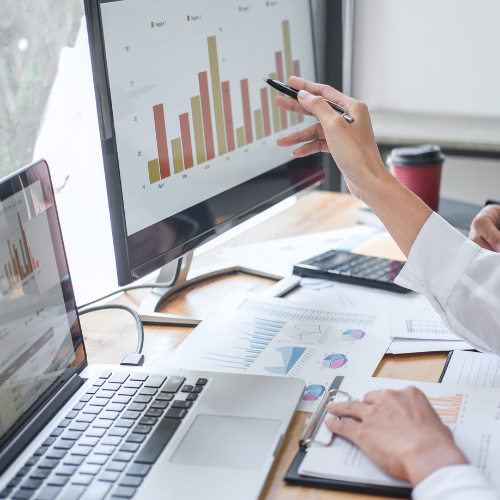After you’ve received your COVID-19 vaccination, it’s normal to wonder what’s next. Many questions exist, such as whether you can contract COVID-19 again, what safety precautions you should continue and when life might go back to normal. While a COVID-19 vaccination is a critical step toward returning to a sense of normalcy, it’s important to continue to prioritize the safety of yourself and those around you.
This article compiles guidance from the Centers for Disease Control and Prevention (CDC), and these tips address common questions you may have after becoming vaccinated.
What side effects should I watch for?
After becoming vaccinated, one of the first steps is to monitor any side effects. There is a chance you may experience mild side effects after taking the COVID-19 vaccine, which is a normal part of the process and simply means the vaccine is working. Some of the symptoms include:
- Pain, redness or swelling near where the shot was administered
- Fatigue
- Joint pain
- Chills
- Headache
Be mindful of these symptoms and be prepared to deal with them after getting the shot. For instance, you may wish to stock up on sports drinks and headache medication before your vaccination appointment. Contact your doctor if you have symptoms that worsen or persist after a couple days.
How long will it take for the vaccine to work?
It takes time for your body to build protection after any vaccination. COVID-19 vaccines that require two shots may not protect you until a week or two after your second shot.
Can I still get COVID-19?
While studies show that the vaccines are around 95% effective, it is still possible to contract COVID-19. Experts believe that getting a COVID-19 vaccine helps keep you from getting seriously ill, even if you do get COVID-19.
Can I still spread COVID-19 to others?
Even if asymptomatic, it is still possible to spread COVID-19 to others, making it important to continue to follow safety recommendations.
Do I need to wear a mask and avoid close contact with others?
Yes. To protect yourself and others, continue to follow these recommendations:
- Wear a mask over your nose and mouth.
- Stay at least 6 feet away from others.
- Avoid crowds.
- Avoid poorly ventilated spaces.
- Wash your hands often.
In addition to becoming vaccinated, following the CDC’s recommendations for how to protect yourself and others will offer the best protection from getting and spreading COVID-19.
Experts need to understand more about the protection that COVID-19 vaccines provide before changing recommendations on steps everyone should take to slow the spread of COVID-19.
Can I see friends and family?
To decrease your chance of getting and spreading COVID-19, the CDC recommends that you do not gather with people who do not live with you at this time. There are a variety of risk factors to consider, and it’s important to understand the risk and make educated decisions. If you decide to engage in public activities, continue to protect yourself by practicing everyday preventive actions.
Can I attend gatherings or events?
Attending events and gatherings increases your risk of getting and spreading COVID-19, but the more steps you can take, the safer you will be at the gathering. The CDC recommends avoiding gatherings, and also offers tips for making large and small gatherings safer.
Can I travel?
Travel increases your chance of getting and spreading COVID-19. While the CDC urges the public to avoid nonessential travel, the agency offers resources outlining risks associated with different travel types and safety considerations for those who must do so.
Do I need to quarantine if I’m exposed to a case of COVID-19?
According to the CDC, vaccinated individuals who have been exposed to someone with suspected or confirmed COVID-19 are not required to quarantine if they meet all of the following criteria:
- Are fully vaccinated (i.e., at least two weeks have passed since receipt of the second dose in a two-dose series, or at least two weeks have passed since receipt of one dose of a single-dose vaccine)
- Are within three months of receiving the last dose in the series
- Have remained asymptomatic since the current COVID-19 exposure
Those who do not meet all three of the above criteria should continue to follow current quarantine guidance after exposure to someone with suspected or confirmed COVID-19.
How do I report a problem or bad reaction after getting a COVID-19 vaccine?
The CDC and Food and Drug Administration (FDA) encourage the public to report possible side effects (called adverse events) to the Vaccine Adverse Event Reporting System (VAERS). This national system collects this data to look for adverse events that are unexpected, appear to happen more often than expected or have unusual patterns of occurrence. Learn about the difference between a vaccine side effect and an adverse event. Reports to VAERS help the CDC monitor the safety of vaccines.
The CDC is also implementing a new smartphone-based tool called v-safe to check in on people’s health after they receive a COVID-19 vaccine. When you receive your vaccine, you should also receive a v-safe information sheet telling you how to enroll in v-safe.
Summary
After becoming vaccinated, it’s important to continue using all the tools available to help stop this pandemic as we learn more about how COVID-19 vaccines work in real-world conditions.
The COVID-19 pandemic is a developing situation, and individuals should continue to monitor guidance from the CDC and local health officials.
- |

Operation Safe Driver Week
Operation Safe Driver Week is an annual seven-day initiative created by the CVSA to help

7/17 Panel Recap & Financial Insights
Stepping into summer 2024, the insurance landscape continues to present challenges and opportunities for businesses

Employee Spotlight: Adam Knapp
Seubert welcomes Adam Knapp to the agency’s Commercial Lines Division as a Technical Account Manager.
